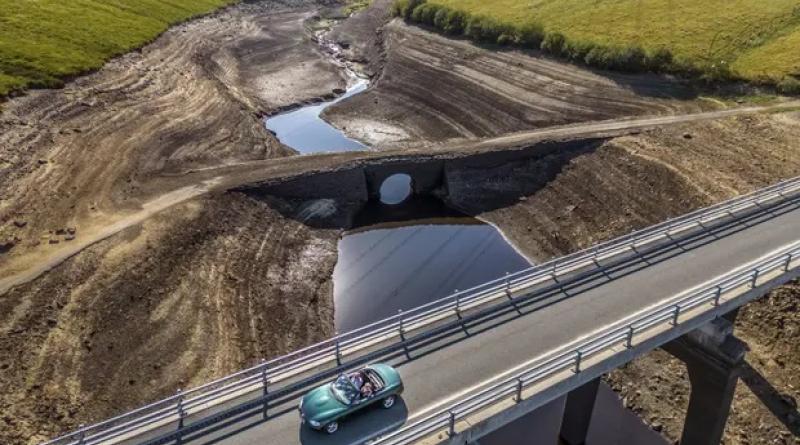2022 will be warmest year on record in UK, says Met Offic

Provisional figures show annual average temperature will exceed previous record set in 2014
2022 will be the UK’s warmest year on record, as the Met Office says figures show the climate crisis is having a real impact.
Forecasters highlighted that the 10 warmest years on record have all occurred since 2003. Temperature trends show that the UK is hotter since humankind started releasing greenhouse gases into the atmosphere by burning fossil fuels, and all four seasons in 2022 fall in the top 10 of a ranking which began in 1884.
The Met Office said the annual average temperature across the UK this year would exceed the previous record set in 2014, when the average was 9.88C.
Dr Mark McCarthy, the head of the Met Office’s National Climate Information Centre, said: “2022 is going to be the warmest year on record for the UK. While many will remember the summer’s extreme heat, what has been noteworthy this year has been the relatively consistent heat through the year, with every month except December being warmer than average.
“The warm year is in line with the genuine impacts we expect as a result of human-induced climate change. Although it doesn’t mean every year will be the warmest on record, climate change continues to increase the chances of increasingly warm years over the coming decades.”
Not only will 2022 be the warmest in 139 years, which is what the Met Office uses as its official record, it will also be the warmest on record in the 364-year Central England temperature series from 1659, the world’s longest instrumental record of temperature.
The final provisional figure for 2022 will be available at the conclusion of the year and will then be subject to further quality control and a verification process.
Forecasters said the year would be remembered not only for its record-breaking warmth, but also for the extreme weather that occurred, including the heatwave in July, with temperatures reaching unprecedented highs. The country recorded its first ever temperature over 40. The hottest place was Coningsby, Lincolnshire, with 40.3C, exceeding the previous UK record by 1.6C. During the hot period in July, the Met Office issued its first ever red warning for extreme heat with widespread impacts for the UK.
There has also been a severe lack of rainfall, with most of the country still in the depths of an again record-breaking drought which began in August.
On the other hand, December has been relatively cool, and 2022 has brought the coldest first two weeks of December since 2010. Temperatures dropped to –17.3C in Braemar, Aberdeenshire.
The Met Office has attributed much of this disruptive weather to climate breakdown.
McCarthy explained: “Met Office science has shown that the temperatures witnessed in mid-July would have been extremely unlikely in the pre-industrial period – the era before humanity started emitting lots of greenhouse gases from burning fossil fuels.
“However, as we have seen in the first two weeks of December, our climate is still subject to notable cold spells during the winter season, but our observational data show these have generally become less frequent and less severe as our climate warms.”
Rebecca Newsom, Head of Politics at Greenpeace UK, said: “These aren’t the kind of records you want to be breaking. I’m sure most of us would rather see record-breaking investment in the renewable technologies that’ll get us out of this mess.
“You don’t have to look far to see the accelerating impacts of the climate crisis: increased flooding, unseasonable temperatures and erratic weather systems are becoming the norm. The Government can’t just talk big on the world stage. If they’re serious about creating green jobs, keeping homes warm and lowering people’s bills, they urgently need to take action at home to reduce our use of fossil fuels, insulate homes and plough more money into renewable solutions.”
cover photo: Baitings Reservoir in Ripponden, West Yorkshire, where water levels were significantly low in August. Photograph: Danny Lawson/PA






